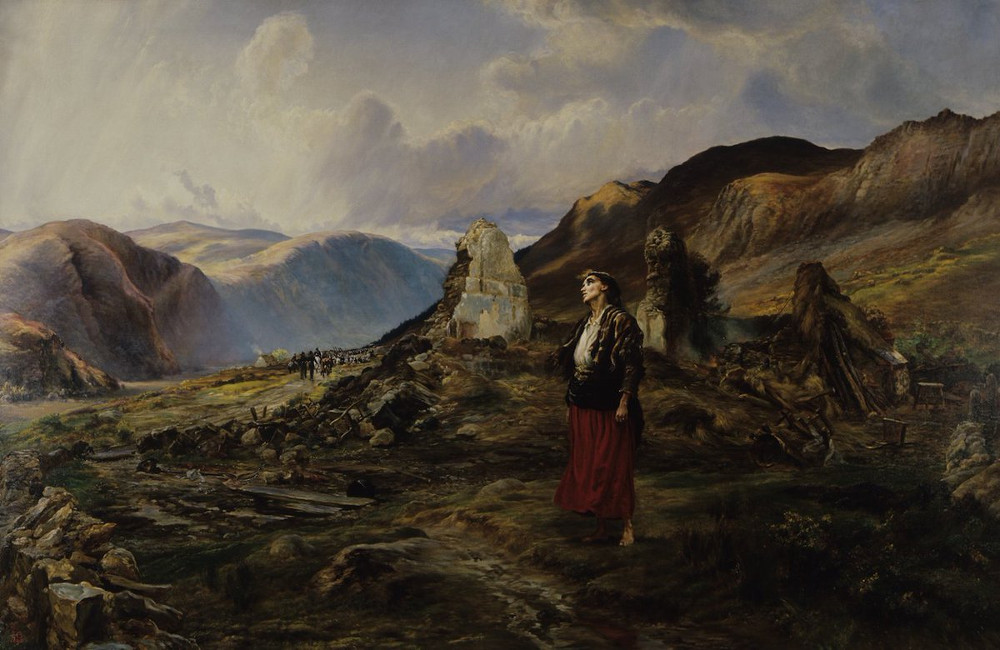Irish Legal Heritage: The imprisonment of Ladies Land Leaguer Hannah Reynolds

Pictured: Evicted by Elizabeth Thompson, c. 1890.
On 23 December 1881, 21-year-old Hannah Reynolds was sentenced at the Petty Sessions court to 28 days in Cork gaol for her work with the Ladies Land League.
The men in the National Irish Land League were charged under the Coercion Acts, however the women of the Ladies Land League were not to be imprisoned under these statutes, and so “an ingenious method of dealing with them was soon to be found” (J Cote and D Knight, Fanny and Anna Parnell: Ireland’s Patriot Sisters). As such, Hannah was sent to prison pursuant to the Justices of the Peace Act 1360, which gave magistrates the discretion to imprison “persons not of good fame” if they did not pay bail as a guarantee of their good behaviour. The discretion to imprison “persons not of good fame” had typically been used to keep “night walkers” (i.e. prostitutes) off the streets, and so it was said that the inference from applying this statute was to designate the women of the ladies land league by “the worst name that can be applied to a woman” (J Cote and D Knight).
Hannah’s “crime” was described by Anna Parnell in speeches she gave around that time, some of which have been transcribed and made available on the Women’s History Association of Ireland website here and here.
Hannah had given advice to a man who had been turned out of a house he had purchased eighteen years earlier in Castletown Berehaven. Undisturbed by rent or taxes, this house “became his by right of occupation as well as of purchase”. In addition to his freehold, Murphy had land under Lord Bantry, but he had stopped paying rent and got “the usual writ informing him that the sheriff would take the land unless he paid the rent”. Instead of going to Lord Bantry’s property, the sheriff along with politician Herbert Gladstone “and an army”, went to Murphy’s freehold where they violently turned him out of his home “breaking the law in order to induce him to go on renting land from Lord Bantry”.
Anna explained that it was for advising Murphy “not to yield to this burglarious demand, and encourage these law-breakers, by obeying them, not to yield to this plunder and trespass”, that Hannah had been imprisoned. She said that the evidence given in court was “entirely false”, and Hannah asked for Herbert Gladstone to give evidence which might have been useful to her – however, the “sneaking spalpeen” refused to give evidence and “disappeared in the most marvellous way”.
Confined to her cell for 22 hours a day, Hannah’s punishment was said to be “far more stringent than those endured by the coercion prisoners”. However, the local Ladies Land League sent meals to her every day of her imprisonment, and “frequent concerts were provided by the local bands who played beneath her window” (J Cote and D Knight).
Seosamh Gráinséir









